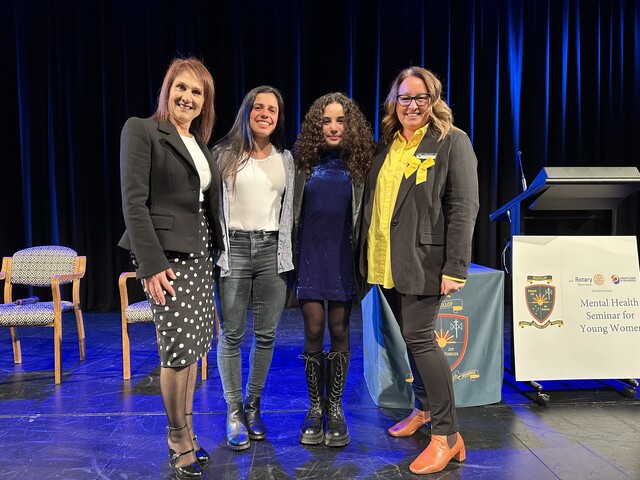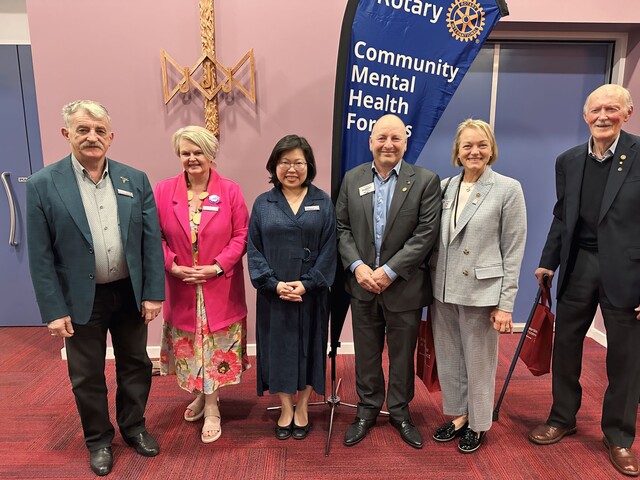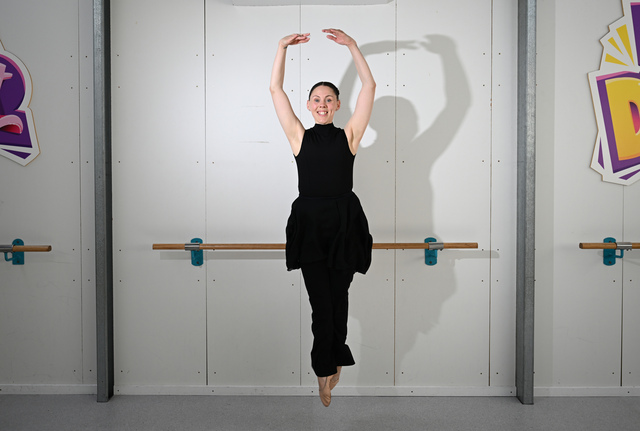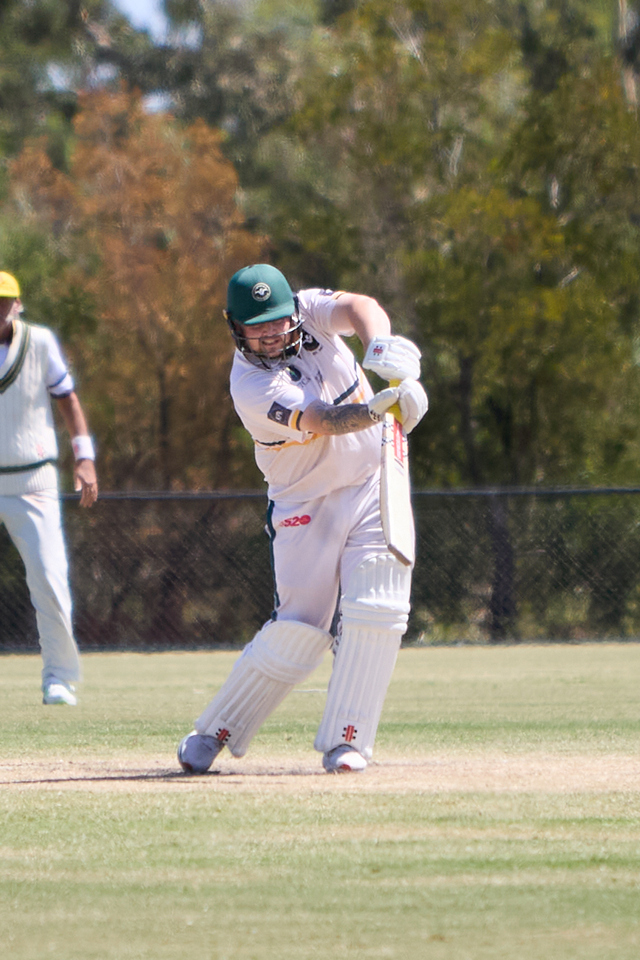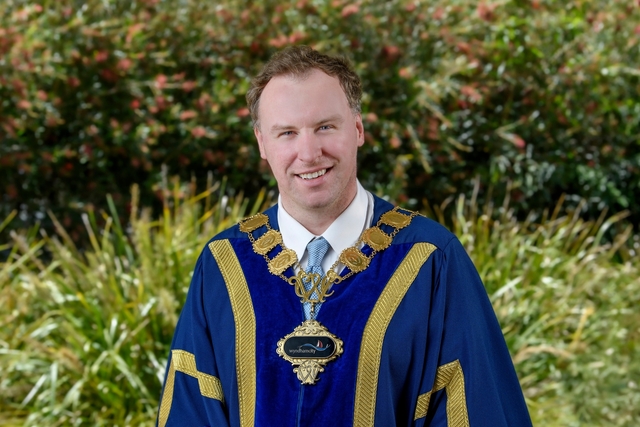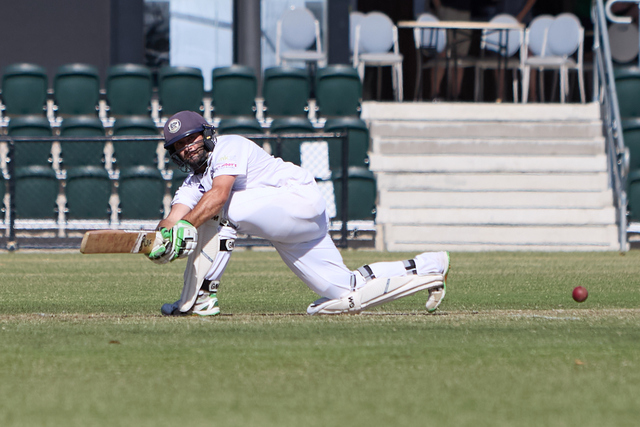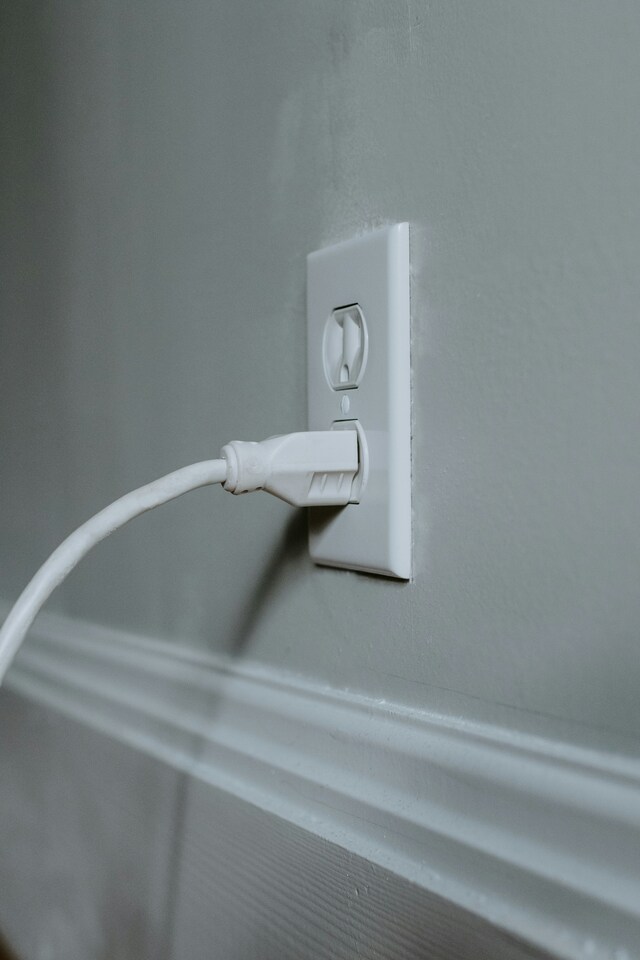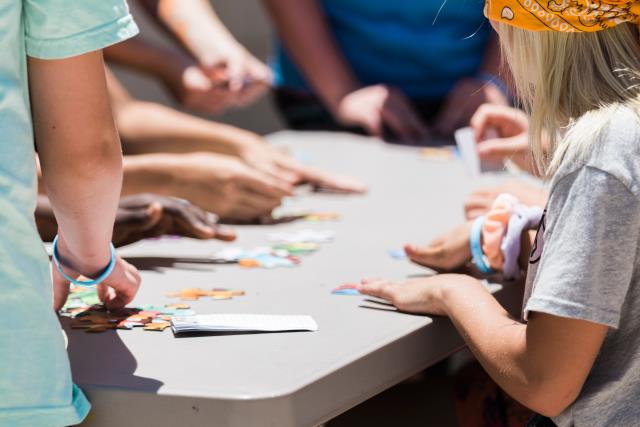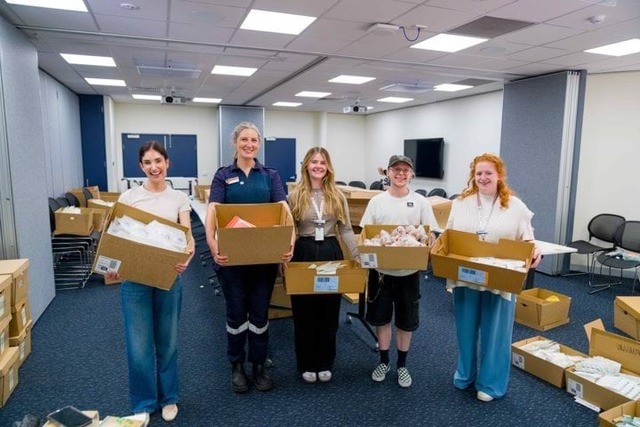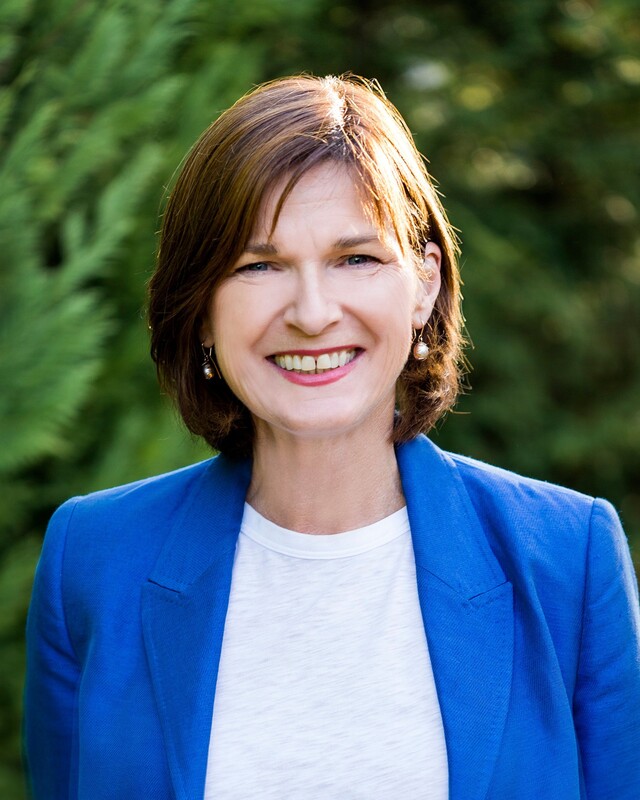Young women impacted by mental health can expect a brighter future, thanks to a partnership between Werribee Rotary Club and MacKillop College on September 12.
They held an annual seminar which featured diverse speakers and panellists, including clinical psychologist Maria Ruberto, Matilda’s midfielder Alex Chidiac and Mackillop’s student councillor Samantha Zahra. There was also a special performance by a young local singer Taysha Farrugia.
Ms Ruberto said the community valued preventative behaviours, but actions speak louder than words.
“We are in the middle of an epidemic where we are seeing that mental health issues for our young people and even across our lifespan seems to be rising. With all of our efforts and especially on the day where we ask each other R U OK? There seems to be an anomaly, there seems to be a difference between what we are trying to do and yet what our data is telling us.”
“We have so many resources available to us; counsellors, psychologists, free online programs, school and community support.”
While the NAB Health Insights Special Report may be “hard to hear”, Ms Ruberto gave attendees a reality check regarding the wellbeing of the nation and community.
According to the report, one in five Australians are diagnosed with a mental health disorder.
One in three people may not have the diagnosis but they are suffering really high psychological distress, the report found.
Seven in 10 young Australians between 18 and 24 needed professional mental health support in the last year, according to the report, while one in four Australians suffer anxiety and depression chronically.
Females and young people between 18 and 24, are twice as likely to report poor mental health, including those in rural and regional areas.
Ms Ruberto highlighted personal responsibility and collective action are key elements of change.
“Reach out, talk to somebody, see your GP and counsellor, connect to people at school, go online and call support line numbers. Do not allow yourself ever, ever to sit in a situation where you are feeling impoverished and overwhelmed, if it’s more than two weeks that’s a real marker. Support is required and it’s so important to be able to get help as early as possible,” she said.
“The triangle check is an easy way for you to try and think about where am I mentally? The triangle check has three points; thoughts, feelings and behaviours. So if our thoughts, feelings and our behaviours are all in check we call this good mental health. This is a really easy way of doing it and I hope you will never forget this!”
Athlete Alex Chidiac reassured young women that she walked in their shoes and saw a light at the end of the tunnel.
“It was definitely tough growing up because there were a lot of expectations. I did get scouted at quite a young age and there was not a lot of hope as people didn’t really make it out of Adelaide as a professional footballer,” she said.
“I was really closed off as a kid and I didn’t like talking about how I was feeling. It would seem from the outside that I was doing well because I was making these teams and I was going away to Asian Championships with national youth teams and things like that. But I was really struggling and once I mentioned it to one of my friends and they were like ‘me too’. That’s when I realised everyone’s struggling and it’s so normal to feel that way. Even now as a 25 year old, I get anxious and nobody in this room has it together, all of us are winging it.
“My grandma came to Australia not speaking any English and found her community in Adelaide and built that up. I think growing up around that and watching what she was able to achieve, how her friends helped her out in that, I really loved that sense of community. It wasn’t until I got into football that I had that. So having teammates that you can rely on, people that you can open up to, I think that’s where that connection was for me. It’s just being with people, even if you don’t necessarily have to speak, just the comfort of sitting with somebody and sharing.”
To foster ongoing growth, MacKillop’s student wellbeing director, Andrew Exton, encouraged students to never miss out on future opportunities to attend the annual mental health seminar.
“The seminar provides a safe space where people can discuss the unique challenges young women and girls experience with regards to their mental health and wellbeing. We hope the information discussed tonight both assists and inspires but also challenges us to care a little bit more about ourselves and each other.”

